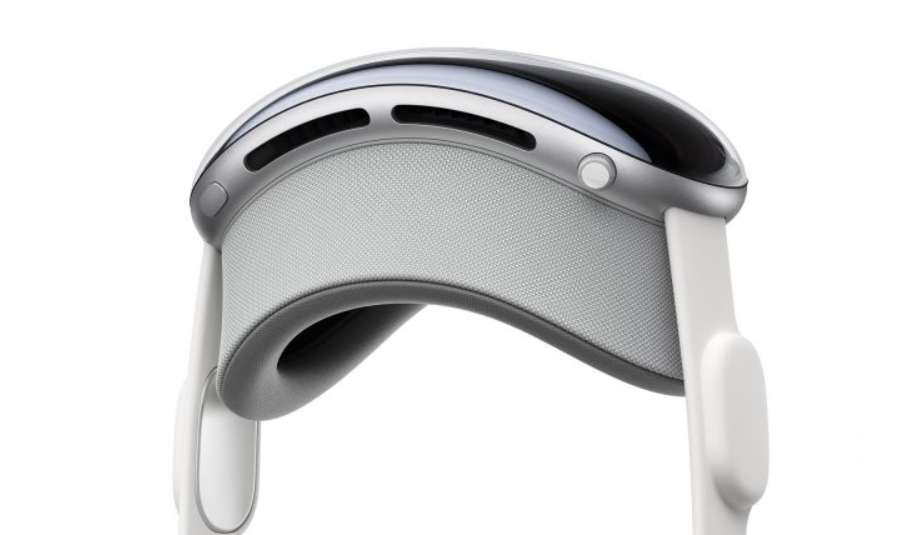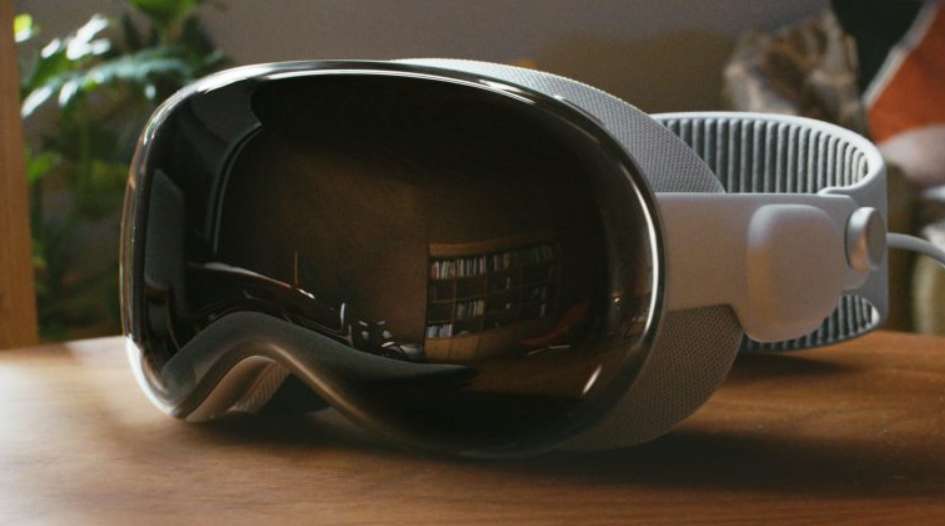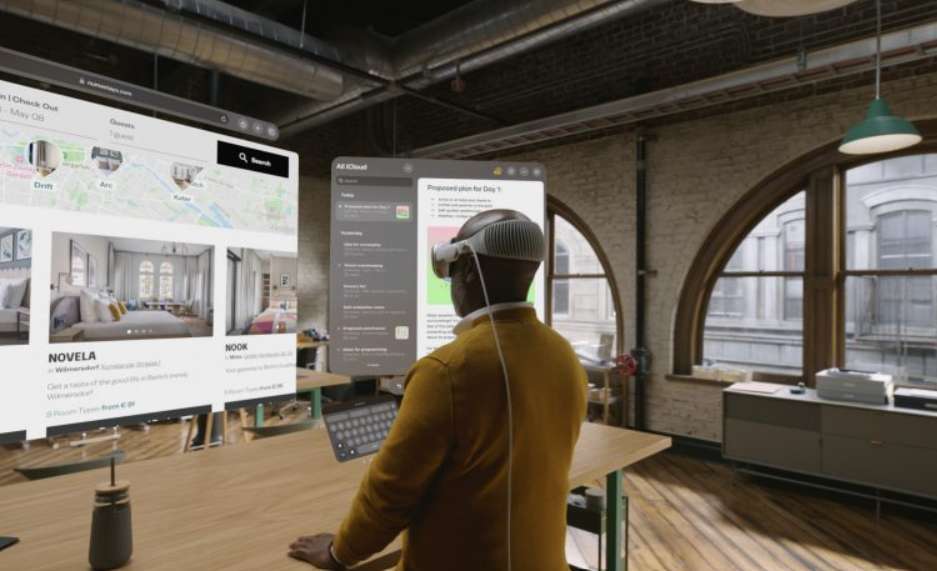
(英伟网Nweon October 7, 2023) One of the most interesting things about Vision Pro is how Apple positions its fully immersive features. Apple has always refused to use the term virtual reality and has repeatedly emphasized MR and spatial computing. So many people think that Apple is ignoring VR. But RoartoVR believes that Apple treats VR as a full-screen mode to focus attention, and Apple’s approach is smarter than everyone thinks, and it may stick to it, and may even become a method that the entire industry will adopt in the future.
Vision Pro is a very capable VR headset, but Apple has put a lot of effort into making the default VR mode feel less like you are in VR and more like see-through MR. While it's not yet fully realized, it's clear that in Apple's ideal world, when you first put on the headset, it should feel like nothing around you has changed.
Apple doesn’t want the Vision Pro to take over your real life, at least not all the time. The company has done a lot of work trying to seamlessly blend virtual images into the room around you. When you create floating UI panels, not only are they subtly transparent, but the system even estimates the lighting in the room, casting highlights and shadows on the panels so they appear to literally be floating in front of you.
Vision Pro is a powerful VR headset, there’s no denying that. In the live demonstration, Apple clearly demonstrated that this device is not only capable of providing a fully immersive VR experience, but that VR functionality is at its core. The headset also features a “digital dial” to allow users to easily switch between MR and fully immersive views

Most of the comments surrounding the Vision Pro have focused on the fact that Apple never actually said the term "virtual reality/VR" and that the headset lacks the dedicated controllers that are at the heart of most VR headsets today. It stands to reason that this is because Apple doesn't want the Vision Pro to have anything to do with VR.
As I had more time to think about my experience with the headset, and as I was able to discuss it with the people behind the product after the demo, it dawned on me that Apple doesn't want to avoid fully immersive VR, The company is actually embracing it, just in a way that's essentially the opposite of what we see in most other headsets today. Frankly, I think their approach could be the one that the entire industry adopts going forward

To understand this, let’s think about Meta’s Quest headset. While things may change soon with the release of Quest 3, so far Meta has largely made VR the primary mode of its headset, with see-through AR an optional, occasional mode. : Applications sometimes use this mode, or the user must consciously switch to this mode.
Apple’s approach to Vision Pro is the opposite. They default to see-through AR mode, but haven't neglected fully immersive VR. Instead, Apple sees VR as a way to present content that keeps users focused.
Apple considers VR to be Vision Pro’s “full screen” mode, which simply means you use it intentionally when you want to get rid of other distractions and focus on a specific piece of media.
If you think about it, this is exactly how we use full screen mode on computers and mobile phones today

Not every application on my computer launches in full screen mode and removes my system interface or hides other windows. In fact, that's not how most of the applications on my computer work. Mostly, I want to be able to see my taskbar and desktop, as well as the various windows and controls I use to manipulate data on the screen
But what if I want to go see a movie or play a game? Full screen, full screen every time.
This is because this is the experience we are focused on and we don’t want to be distracted by any other elements. We want to focus, so we eliminate all kinds of clutter and even hide the mouse.
Just like you don’t want every app on your computer to be in full-screen mode, Apple doesn’t think every app on your headset should be like this
Most should follow familiar patterns and share a common interface language. And most don't require full screen (immersive VR mode). In fact, some experiences not only don’t benefit from greater immersion, they actually get worse in certain situations. I don't need a fully immersive environment to view PDFs or spreadsheets. If I want to play chess, I don't need to delete all other windows and data. All of this can still happen, they just don’t need to be my sole focus.
Most applications can (and should) work together seamlessly. But only when we want a "full screen" experience should we allow the app to completely take over and block other content
This is how Apple treats fully immersive VR with Vision Pro. Apple isn't ignoring VR, it just thinks people don't want apps to be "full screen" all the time. When someone wants full screen, they can consciously choose to launch
As for the dial on top of the headset, while some believe this shows that Apple wants to make it faster and easier for people to escape from immersive VR experiences, I think Apple views the dial as a two-way street: it is both a "go to full screen" button , which is also the "Exit full screen" button. This is the same thing we see on most media apps.
Eventually, I think Apple's approach will become the standard for the entire industry. Apple is right: people don't want their apps to always be full-screen. Being fully immersed in something should be optional, not required.
The content that needs to be rewritten is: ---
The content that needs to be rewritten is: Original link: https://news.nweon.com/113504
The above is the detailed content of Apple Vision Pro's handling of VR is smarter than expected and may become a future industry standard. For more information, please follow other related articles on the PHP Chinese website!
 How to restore Bluetooth headset to binaural mode
How to restore Bluetooth headset to binaural mode
 What browser is edge?
What browser is edge?
 Win10 does not support the disk layout solution of Uefi firmware
Win10 does not support the disk layout solution of Uefi firmware
 How to use dict function in Python
How to use dict function in Python
 What are the differences between hibernate and mybatis
What are the differences between hibernate and mybatis
 What should I do if iis cannot start?
What should I do if iis cannot start?
 what does bbs mean
what does bbs mean
 Advantages and Disadvantages of Free Overseas Website Servers
Advantages and Disadvantages of Free Overseas Website Servers




